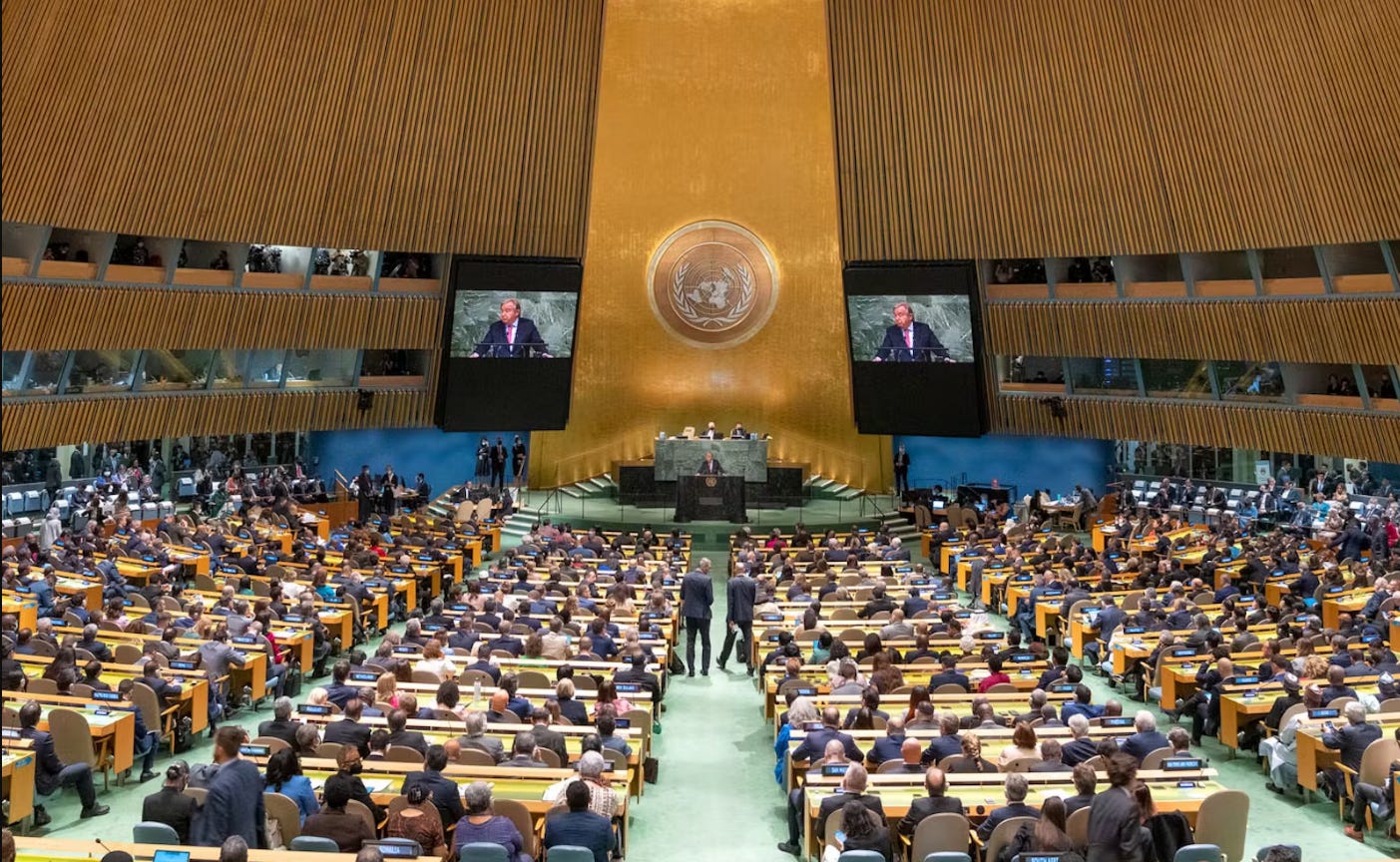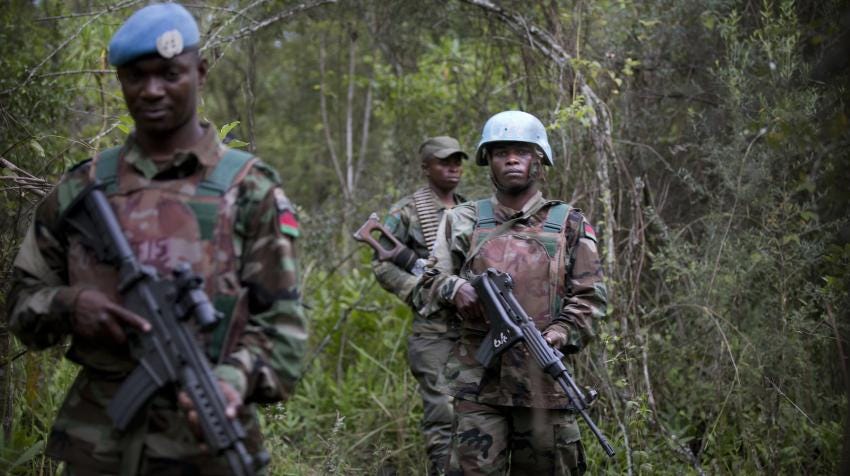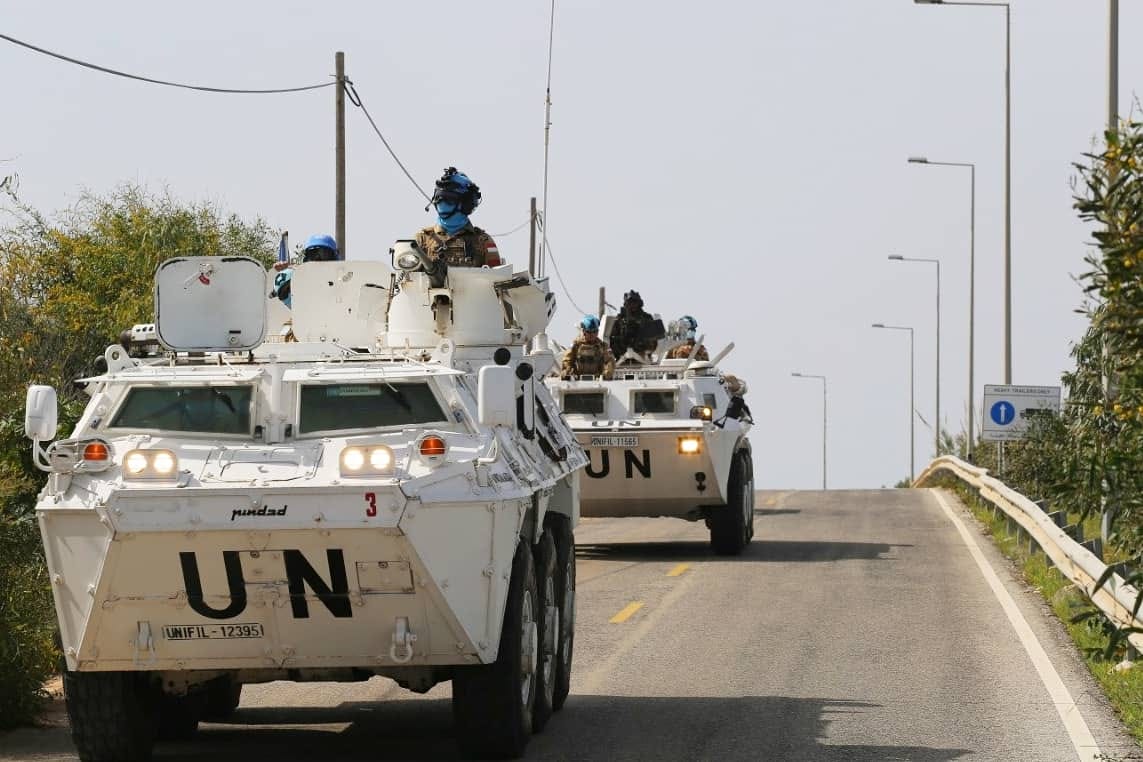🌍 What has the UN achieved after 80 years? 🕊️✨
After eight decades, the United Nations remains the world’s most significant experiment in multilateralism

The Main Takeaway 🎯
The United Nations (UN) celebrated its 80th anniversary worldwide on Friday (10/24).
With the global theme “Building Our Future Together,” the UN aims to improve lives and promote peace, justice, and equality.
To face global challenges, the UN launched the UN80 Initiative to make the organization more agile and integrated, focusing on structural reform, budget efficiency, and program alignment.
The initiative, expected to helps more countries in conflict resolve issues, build lasting peace, and promote human rights under international law.
Why It’s on Our Radar 🔍
Many major geopolitical conflicts worldwide need the UN’s attention, including:
The Middle East conflict, especially between Palestine and Israel in Gaza since October 7, 2023, has spread to Lebanon, Yemen, Syria, and Iran.
Russia-Ukraine conflict, which began on February 24, 2023.
Myanmar conflict, due to a military coup on February the 1st, 2021.
Conflicts in Africa, including DR Congo, Burkina Faso, Cameroon, South Sudan, Chad, Mali, Sudan, Nigeria, Burundi, and Ethiopia.
Why It Matters ⚠️
The failed Gaza ceasefire has left about 1.9 million Palestinians facing displacement, hunger, and disease due to Israel’s blockade restricting food, medicine, and fuel.
The Russia-Ukraine war has driven up global prices of energy, oil, gas, wheat, and sunflower oil, causing inflation and economic fragmentation in Europe.
The crisis in Africa can cause mass displacement, famine, disease outbreaks, and regional instability.
The military coup in Myanmar has caused more violence, deaths, and displacement, worsened by a 7.7 magnitude earthquake on March 28, 2025, that destroyed infrastructure and pushed ASEAN to seek solutions.
Why This Hits Home ❤️
All ASEAN member states are part of the UN and have agreed to a joint comprehensive partnership for 2021–2025 between ASEAN and the UN.
The partnership focuses on strengthening cooperation to support the ASEAN Community Vision 2025 and the UN 2030 Agenda for Sustainable Development through:
Political-security: good governance, human rights, democracy, and regional/international issues.
Economic: ASEAN integration, MSMEs, energy, tourism, science, and technology.
Sociocultural: disaster management, environment and climate action, culture, education, and social welfare.
Cross-sectoral: ASEAN connectivity, narrowing development gaps, cybersecurity, and safe online environments.
Secretariat-to-secretariat cooperation.
The Big Picture 📸
The United Nations (UN) was founded through the UN Charter, signed by 50 countries in San Francisco on June 26, 1945, and by Poland on October 15, 1945. It officially began on October 24, 1945.
The organization aims to promote global peace, justice, security, humanitarian aid, and human rights under international law.
As of August 2025, 193 countries are UN members, with over 60,000 personnel serving in 11 peacekeeping missions worldwide.
What’s at Stake ⚖️
According to the UN, the Gaza conflict since October 7, 2023, caused about USD 49 billion in damage by February 2025, including USD 15.8 billion in housing losses. Recovery is estimated at USD 53.2 billion, and costs may rise as fighting continues.
In Ukraine, a joint assessment by the government, World Bank, EU, and UN estimated direct war damage at USD 176 billion by February 2025, mainly affecting housing, transport, energy, industry, and education. The recovery costs in Ukraine are projected at about USD 524 billion over the next decade.
In Africa, Kenyan President William Ruto said ongoing conflicts cost the continent about USD 18 billion annually, prompting the African Union to call for urgent renewal of its peace and security framework to address complex challenges.
The World Bank reported that the earthquake caused USD 11 billion in damage in Myanmar, equal to 14% of its GDP, with GDP expected to shrink by 2.5% in 2025/2026. The UN estimates reconstruction could cost up to USD 33 billion.
Regional Stakes 🌏
Across Southeast Asia, ASEAN members play diverse roles within the United Nations — from founding members shaping global policy to newer states steadily expanding their contributions to peacekeeping and development.
🇮🇩 Indonesia joined the UN on September 28, 1950, and today stands as ASEAN’s largest peacekeeping contributor, deploying more than 2,700 personnel across missions in the Middle East, Africa, and Asia.
🇲🇾 Malaysia, a member since 1957, follows closely with 869 peacekeepers, reflecting its long-standing commitment to multilateral diplomacy.
🇰🇭 Cambodia, which entered the UN in 1955, has become an active player with over 600 personnel serving under the blue helmets — a powerful statement from a nation once rebuilt through UN missions itself.
🇹🇭 Thailand joined in 1946, among the earliest in the region, and contributes over 300 troops to peacekeeping operations, often focusing on humanitarian and medical assistance roles.
🇻🇳 Vietnam, admitted in 1977, now deploys nearly 280 personnel, many serving in field hospitals and engineering units — part of its growing global engagement.
🇵🇭 The Philippines, a founding UN member (1945), maintains a symbolic but steady presence with 35 personnel, while its diplomats remain influential in global peace and development forums.
🇧🇳 Brunei Darussalam, joining in 1984, contributes 30 peacekeepers, underscoring its quiet yet consistent commitment to collective security.
🇹🇱 Timor-Leste, the region’s youngest UN member since 2002, has begun to participate with two personnel, marking a significant step for a country once under UN administration.
Meanwhile, Myanmar (since 1948), Lao PDR (since 1955), and Singapore (since 1965) have not deployed personnel to UN missions — though each contributes through diplomacy, humanitarian aid, and technical cooperation within other UN frameworks.
Together, these varied paths show how Southeast Asia’s engagement with the UN reflects not only different capacities but a shared belief in multilateralism and peace.
(UN Peacekeeping, January 2025)

Beyond the Headlines 🧭
Indonesia is the 5th largest contributor to UN peacekeeping missions globally, under Nepal (5,942 personnels), Rwanda (5,897 personnels), Bangladesh (5,689 personnels), and India (5,375 personnels).
Since its founding, the UN has helped end and stabilize dozens of conflicts through mediation, including:
A 70-year territorial conflict between Namibia and South Africa ended in 1990.
A 12-year civil war between the El Salvador government and the FMLN rebel group ended in 1992.
Cambodia’s internal conflict between the Phnom Penh government and a three-party coalition began in 1982 and ended with the Paris Agreement in 1991.
A 15-year civil war in Mozambique between the ruling FRELIMO and RENAMO ended with a peace agreement in 1992.
A 14-year civil war in Liberia between government forces and the opposition group NPFL, ended with a peace agreement in 2003.
👉 The Bottom Line
The United Nations enters 2026 facing deepening challenges — financial, political, and moral — as conflicts multiply and consensus wanes.
💰 Budget Cuts
The UN has proposed a USD 3.24 billion budget for 2026, a 15% drop from the previous year. The cut means an 18.8% staff reduction and a projected USD 135 million deficit — testing the UN’s ability to sustain peacekeeping and humanitarian operations.
🇵🇸 Palestine–Israel
By September 2025, the United States had vetoed six ceasefire resolutions on Gaza, despite backing from 14 of 15 Security Council members.
Tensions reignited on October 10, as Israel and Hamas accused each other of violating the US-brokered ceasefire.
Still, there was one diplomatic breakthrough: the New York Declaration on September 12, reaffirming support for a two-state solution, endorsed by 157 of 193 UN members.
🇷🇺 Russia–Ukraine
The UN continues to condemn stalled diplomacy. Russia rejected a US-backed ceasefire proposal that had won support from Ukraine and European allies — prompting the cancellation of a planned Trump–Putin meeting in Budapest.
🌍 Africa
Across the continent, the UN faces entrenched conflicts fueled by historic grievances and non-state actors. Efforts now focus on addressing root causes, strengthening cooperation with the African Union, and fostering local dialogue to build lasting peace.
🇲🇲 Myanmar
As the military junta pushes ahead with December elections, concerns over fairness and transparency mount.
Airstrikes and aid restrictions persist, while the UN urges an end to civil conflict and calls for humanitarian access, especially in quake-hit areas.
Need More Angles?
Al Jazeera US vetoes UN Security Council Gaza ceasefire demand for sixth time
South China Morning Post Ahead of Asean summit, scam crackdown in Myanmar dismissed as ‘not serious’
United Nations The United Nations at 80,Building our future together
United Nations Global Issues Africa
United Nations Peacekeeping Where We Operate?
(NGO/QOB)





